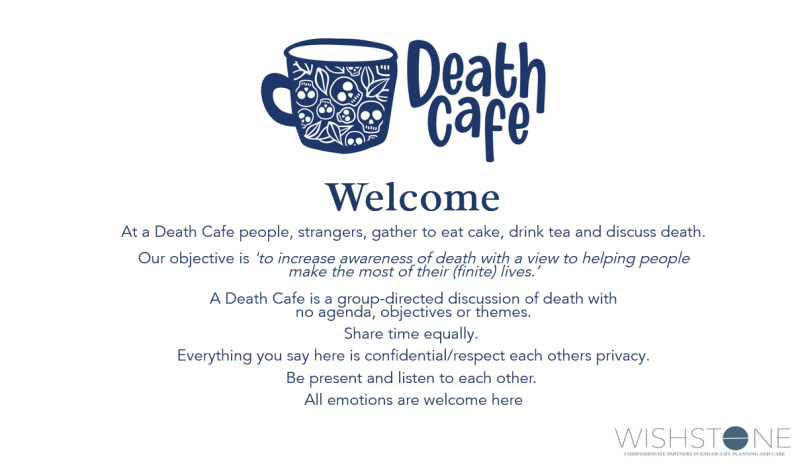In the twilight of a Monday evening, a group congregated on the fourth floor of the Toronto Reference Library to talk about life’s final question — death — over tea and lemon cake.
Death cafes are a global phenomenon that exist to give people a safe space to talk about death with strangers. Starting in 2011 by Jon Underwood from the United Kingdom as a pop-up event in his home, the cafes have grown into a massive global franchise with over 16,000 cafes in 85 countries to date.
Monday’s cafe was facilitated by two death doulas and coordinated by Vanessa Sparks, seniors services specialist at Toronto Public Library, and 36 people attended the cafe. Sparks says that while death cafes have been held in Toronto for a while, it is only recently that they have come to libraries.
“Public libraries are, I think, one of the last remaining spaces where anybody is welcome,” says Spark. “In that way, it’s an environment that suits the death cafe. It’s a place where people can connect and share about this taboo topic of death and dying.”
Sparks says that with the pandemic, death was put into the forefront of everyone’s lives where before it was more hidden.
This is a sentiment that is shared with Sarah Farr, a facilitator and death doula at the cafe. Farr says that in modern society, death is not typically visible as it has been “medicalized” and pushed away from the public consciousness.
“You can argue good or bad with the medicalization and pushing it away. I think now people are seeing that model has not come in line with what the needs are now,” says Farr.
Farr and Ruth MacKay, the other facilitator and death doula at the cafe, thought the cafe was a success. Throughout the evening, both doulas would go around to give help to any tables where the conversation lulled so they could pick it back up. Neither had to do that as both say that every table was lively with conversation as strangers opened up to each other surrounding the topic of death.
“You could see tonight with 36 people and the conversation never flagged. It’s as if people have this sort of pent up interest in having these conversations but just had no place to have them,” says MacKay.
One of the tables had Sparks at it. Despite coordinating all the cafes, Monday’s was her first time ever attending one as a participant.
“I was surprised by the kind of variety of perspectives and views that you get, and the sort of immediate intimacy that developed between just a group of strangers,” says Sparks. “I learned tons just from going to the death cafe [Monday] that I was reflecting on, on my way home and this morning.”
With the turnouts to the first death cafes being larger than expected, Sparks says that there is a chance for the cafe to continue after the first run is over.
“We decided we would test it out and see how people responded to them and how [the doulas] felt the library setting worked for them. We will assess from there but I think that there’ll be more in the future. There’s none scheduled after July but I think it’s fair to say there might be,” says Sparks.
The next cafe is scheduled for July 15 at the Agincourt branch of the Toronto Public Library.
Listen to the story below:


